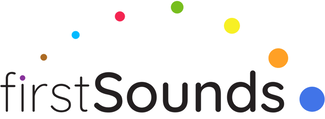RESEARCH
|
Experts agree that the early years are prime learning for children. Babies are constantly absorbing their surroundings, which include culture, social interactions and language.
|
Research has shown that infants who are routinely exposed to sounds from many languages during their first year develop tonal memories that may enhance their ability to acquire multiple languages.
|
In the TEDXRainer talk, The Linguistic Genius of Babies, Patricia Kuhl shares astonishing findings about how babies learn one language over another -- by listening to the humans around them and "taking statistics" on the sounds they need to know. Watch Now
|
|
80% of students in Europe speak at least two languages. |
Of the over 55 million students in U.S. public schools, only 50,000 students study Mandarin Chinese - a language spoken by over 1 billion people worldwide. |
Only 14% of U.S. students consider themselves bilingual. |
In the News
Children who study languages are more imaginative, better with abstract ideas and more flexible in their thinking.
- Parents.com
The sooner you expose a baby to a second language, the smarter they will be.
- BigThink.com
Babies retain their early exposure to foreign languages.
- LiveScience.com
Babies' brains are best at learning a second language between the ages of birth - 3 years of age.
- ScienceDaily.com
Infants are born “citizens of the world” and can acquire any language easily. Until the age of 6 months, they discriminate the phonetic contrasts of all languages, something their parents are unable to do. By the end of the first year of life, infants show nascent specialization. Neural sensitivity to native-language phonetic units increases while the ability to discern phonetic differences in other languages declines. Research on infants shows they “crack the speech code” using computational skills, but also that social interaction plays a significant role in the process.
- "Bringing Up (Bilingual) Baby." Wall Street Journal, October 6, 1999
Start teaching the second language before the child starts to speak. Before they start to speak words, children listen and store almost everything they hear. This is the prime of their “critical period for absorbing language".
A growing number of brain studies indicate that infants can learn a second language more easily if they are exposed to it before they learn to talk. in the period in which their brains are being wired. Infants are “citizens of the world, ready to learn any language,” says neuroscientist Patricia Kuhl, co-author of a book on infant development.
- Patricia Kuhl: The Linguistic Genius of Babies



